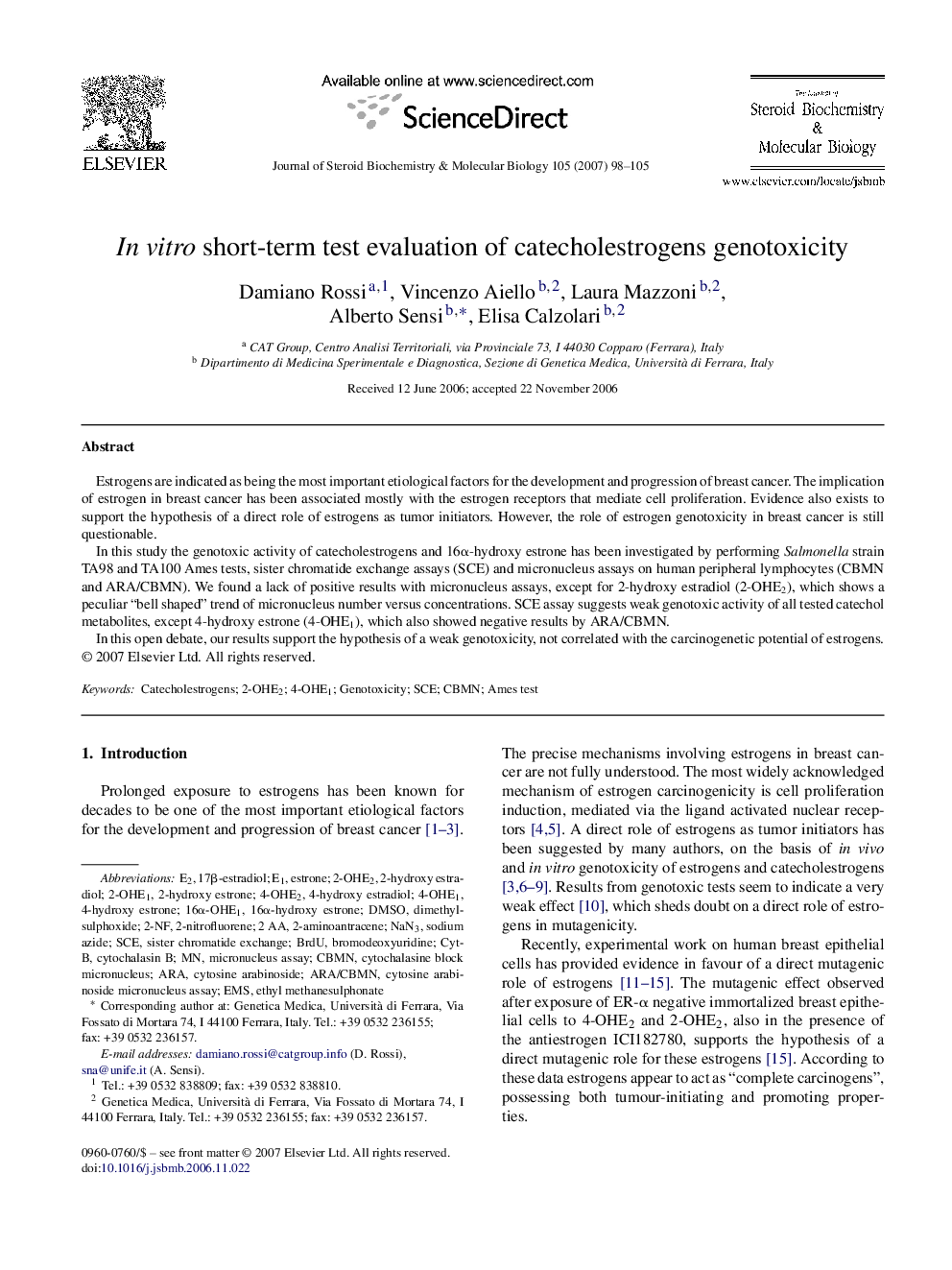| Article ID | Journal | Published Year | Pages | File Type |
|---|---|---|---|---|
| 1992269 | The Journal of Steroid Biochemistry and Molecular Biology | 2007 | 8 Pages |
Estrogens are indicated as being the most important etiological factors for the development and progression of breast cancer. The implication of estrogen in breast cancer has been associated mostly with the estrogen receptors that mediate cell proliferation. Evidence also exists to support the hypothesis of a direct role of estrogens as tumor initiators. However, the role of estrogen genotoxicity in breast cancer is still questionable.In this study the genotoxic activity of catecholestrogens and 16α-hydroxy estrone has been investigated by performing Salmonella strain TA98 and TA100 Ames tests, sister chromatide exchange assays (SCE) and micronucleus assays on human peripheral lymphocytes (CBMN and ARA/CBMN). We found a lack of positive results with micronucleus assays, except for 2-hydroxy estradiol (2-OHE2), which shows a peculiar “bell shaped” trend of micronucleus number versus concentrations. SCE assay suggests weak genotoxic activity of all tested catechol metabolites, except 4-hydroxy estrone (4-OHE1), which also showed negative results by ARA/CBMN.In this open debate, our results support the hypothesis of a weak genotoxicity, not correlated with the carcinogenetic potential of estrogens.
